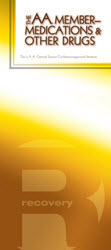- Increased risk of suicide and self-harm,
- addiction to the antidepressant drugs themselves, and
- debilitating withdrawal symptoms.
Antidepressants
Aropax, Loxamine, Seroxat
Aropax, Loxamine, Seroxat are simply different brands of a type of drug known as SSRIs. Loxamine, a generic cheaper equivalent of Aropax, and Aropax itself are commonly used by doctors in New Zealand and Australia for treating various types of depression. These drugs are essentially the same as Seroxat, the brand common in the UK.Suicide as a Side-Effect of Antidepressants
This BBC Panorama series is an in-depth investigation into these antidepressants (Aropax, Loxamine, Seroxat), and reveals suicidal and homicidal behaviours as side effects.Authoritative people in this BBC documentary believe it reveals one of the biggest medical scandals ever.
These so-called antidepressants are creating these feelings in patients:
- "I started thinking that everyone was out to get me. I started to feel angry and murderous. I wanted to kill my partner and my family. I've never felt like that before..."
- "My father was on Seroxat for 4 days. On the fourth day of taking them he was in possession of a hunting gun, and he went to a local wood and shot himself."
- "When I was on the tablets I did self harm."
- "Within a day of not taking Seroxat I was going absolutely berserk. I was threatening to drive 100 miles back home to get a pill to take. I was driving around pharmacies begging them to give me a packet of Seroxat."
Children are 3 times more likely to attempt suicide on these antidepressants:
Antidepressant drug, intended as an anger-management solution, results in a young adult hanging himself.
19 - 29 year olds, particularly males, are at high risk. Psychiatrists say adults are at risk too.
Grieving parents would not have used these SSRI drugs if they had been aware of these risks:
Original clinical trials of the drug show that, on average, all age groups are 2.5 times more likely to commit suicide than those on placebos.
Families and individuals who have trusted the medical regulators have paid the ultimate price.
They feel that their trust has been broken:
These SSRI antidepressants are compared with Thalidomide tragedy, which resulted in the "Yellow Card" system for detecting serious problems with drugs in circulation.
Typical comments doctors have written about their patient who are taking these antidepressants [or were taking them, before they died] :
- "He clearly stated that he had not thought about suicide until taking Seroxat."
- "My patient shot himself..."
- "We have evidence that suspect drug drove patient to suicide."
- Dose changes, either increase or decrease, appear to have trigger suicide
Doses above 20mg have little, or no additional benefit; Side effects increase dramatically on withdrawal from doses above 20mg.
SSRI antidepressants are found to be "The most complained-about drugs in history", when their yellow-card statistics are analysed.
Authoritative people, aware of the problems, are gagged from publicising it :
Seroxat has become the most profitable drug that GSK has ever made. Surprise surpise!
GSK pushes forward with promoting these antidepressants as a solution for many more disorders -- OCD, social phobia, etc.
It appears that marketing and profit are being persued at a higher priority than patient wellbeing.
Many people on the drug say that they are now hooked. It is highly addictive, and extremely difficult to withdrawal from.
Many withdrawal side effects are more serious than the patient's original problem! Side effects include problems that patients had never previously experienced:
- more anxious
- depressed
- obsessive and compulsive
- suicidal thoughts
- many more of exactly the types of symptoms that the drug was intended to fix!
These drugs were issued with patient information that claimed them to be non-addictive.
These antidepressants are :
- highly addictive, and
- extremely difficult to withdraw from :
Many patients are extremely angry.
The suppliers appear stoically arrogant:
A Thought to Ponder
Please Say a Prayer for the Drug Companies
Lets pray for the souls of the people within the drug companies who are perpetuating this attrocity.
It must be a terrible position for them to be in -- to be hated by so many individuals, and families, whose lives have been wrecked by their selfish greed.
God lives in people, and in the minds of people -- the very minds that these scientists are trying to use antidepressants to control.
Are they trying to control God himself?
Loxamine and Alcoholism
Blackout and memory problems in alcoholics result in missed pills (Loxamine), and so result in repetitive withdrawal/restart cycles.
This triggers uncomfortable and dangerous withdrawal symptoms -- anger, self-harm and suicide.
Antidepressants and Your Options
Be Aware and Be Well Informed
Are you prepared to take a one in four chance of becoming suicidal?
Seek advice from your doctor before changing your medication. It is extremely risky to:
- stop taking antidepressants (it may be necessary to wean yourself off slowly in order to avoid dangerous side effects)
- change your antidepressant dosages
- start taking antidepressants
Be Aware: Doctors and psychiatrists are still prescribing these drugs.
Seek advice from people you trust. Get a second, or even third, opinion if you have any doubts.
Keep an open mind about where the answer to your problems may come from. Be courageous in exploring all the excellent options available:
Consider a Comprehensive Approach
Aim to achieve balance when seeking a solution to your problems. Consider devoting 1/3 of your efforts to each of:
- your physical condition
- your mental condition
- your spiritual condition
There are many excellent alternatives in each of these areas. We know that your conscience will guide you to the best solution for you personnaly.
Antidepressant Suicide in the Press
Antidepressant drugs cause suicidal thoughts and suicides, particularly when starting, stopping, and changing dosages:

